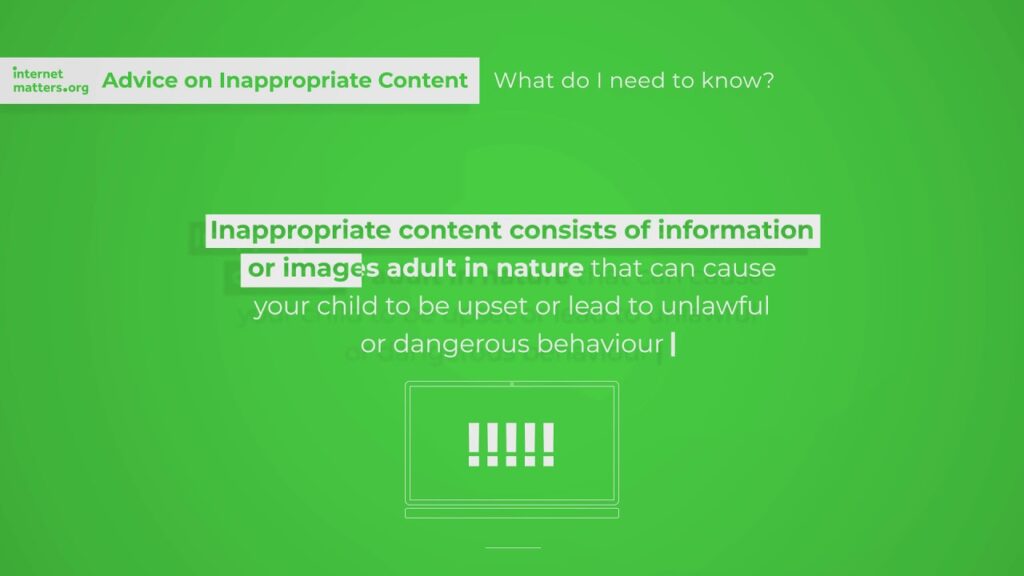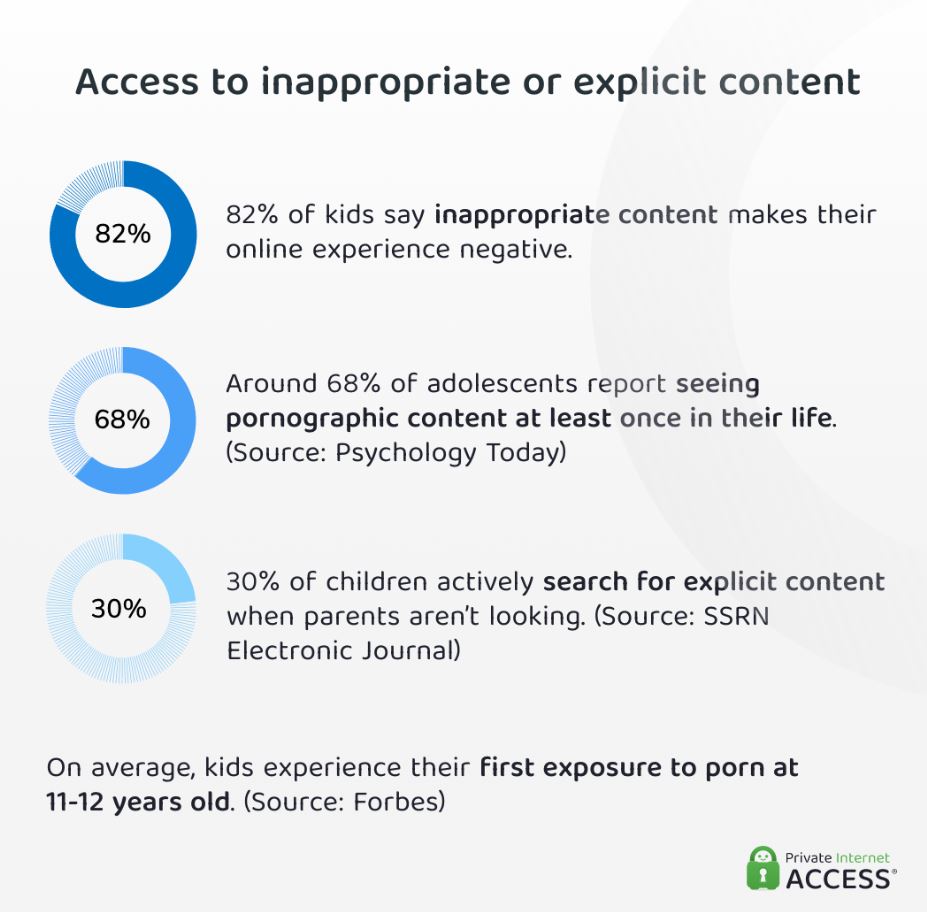Our mind is like a program filled with information and moral rules. Some parts of our personality are good while some are bad. We choose how to act in our life.
Unfortunately, our kids are exposed to various dangers in school, at home, and in front of the screens. They can become victims of inappropriate behavior online and offline.
No matter how hard parents try, there is always a possibility of children encountering strange online behavior.
Prevalence of Inappropriate Content or Messages Online
The digital world is as cruel as the real one. Inappropriate content and messages our kids might get can affect their living and well-being.
This abnormal behavior from the opposite screen is so widespread that it is hard to protect our kids.
How Can Parents Fight the Invisible Enemy

Parenting is not an easy thing to do, both online and offline. And life is often dangerous, especially online. Therefore, we must introduce our kids to possible dangers on their devices such as:
- Scammers
- Hackers
- Cyberbullies
What is Considered Inappropriate Content?
Inappropriate content is information sent from a stranger to our kids that contains violence, pictures of nudity, aggression, and harmful instructions.
These users intend to abuse and harm children physically and mentally. So the virtual world works the same as the real one when it comes to dangers.
Often, people on the Internet share explicit and inappropriate content that isn’t meant for children’s eyes. Examples of content your children should avoid online are:
Violence
Kids can see images on social media, for example, people hurting each other, using weapons to kill, blood, and street fights. This causes them to experience fear or even prompts them to imitate the actions done.
Offensive arguments and harassment
Kids often witness situations where arguing and offending others are praised. Kids can either reject or accept that behavior as normal.
Humiliation
Kids can see how, for example, people with money power hurt poor people and humiliate them both online and offline. Seeing this, kids can develop a wrong mindset and become offenders themselves
Abuse
Disgusting pictures and videos of older people abusing and molesting children are often present online. Kids’ reactions can be fear and shame.
Family Violence
Domestic violence is often shared online, and this content can affect children by installing fear or maybe even approval of domestic violence.
Discrimination
Content discriminating against people based on race, religion, and gender is often found on the Internet. By getting exposed to this content, kids can get insecure about their religion or race or start discriminating against others.
Inappropriate message from a stranger
Kids can become victims of online predators or bullies while using social media. With a simple chat, a stranger can get into our kids’ life and traumatize them.
Nudity
Nudity is extremely widespread on social media these days. So, you must check which profiles your children follow on social media.
Steps to Take if Your Child Receives Inappropriate Content or Messages

As parents, we lose control over ourselves if something bad happens to our kids. If our kid has received inappropriate content or message, staying focused and calm is the best option.
But how to accomplish calmness when you are burning inside? Count to ten, drink a glass of water, and stay strong.
You are the one responsible for your kid, so get together and think. Avoid hand tremors and shaky voice. You don’t need to scare your kid even more. The following steps are key in handling a situation like that.
Don’t argue with your kid
Kids are sensitive and emotional. They don’t want to be accused by parents for something they are not to blame for. Remove your child from the screens, calm him/her, and continue working on the content.
Focus on the received content or message
Read the received content several times, analyze, and save it for use as proof in the future.
Report the problem
Block the sender and report to the platform, or if it’s a serious threat, report it to the authorities. Explain the kid’s negative reaction after receiving the content.
The Consequences of Children Being Exposed to Inappropriate Content

Kids’ condition after these experiences changes from better to worse (tantrums, fears, screaming day and night, crying, isolating in a room, and depression). If talking to your kid does not help, professional help can.
Research from DQ Institute shows that many children worldwide face online risks every day. To prevent these unwanted situations parents always can:
- Open conversation with our kids about their behavior online;
- Profiles on social media accounts must be private;
- Kids mustn’t share private information;
- Talking to kids about online risks like identity theft, online predators, cyberbullies;
- Monitor what apps, websites, and video games your kids use;
- Setting parental control apps;
Conclusion
Being socially active online demands rules and safety measures.
The ideal combination to provide a safe online presence for our kids is monitoring their tech usage, pointing out apps and websites they can use, and setting parental control apps.
Our kid’s health is priceless, and we must do everything we can to keep them safe and healthy.
FAQ
What are some signs that my child has received inappropriate content or messages online?
Your child might showcase strange behavior like isolation, depression, anxiety, fear, panic attacks, denial to use tech, etc. Shortly, every unusual activity you detect in your children might be a sign they receive inappropriate messages online.
How do you talk to kids about inappropriate content on the Internet?
Try to have a friendly and polite approach. See how your child feels about the topic and hear out their thoughts about it. You should have this conversation when your child is younger so they can make being safe online a habit.
How do I stop my child from accessing inappropriate content?
You can always monitor their Internet behavior with parental control apps. They’re great because you can limit children’s screen time, block access to sites, and much more!
What happens when a child is exposed to inappropriate content?
The child can get traumatized and scarred for life. That’s why it’s crucial to make sure your child is safe online.
How do I talk to my child about inappropriate internet searches?
Be honest and direct. That’s the best way. Having a trustful relationship with your children where you can discuss the pros and cons of everything is the way to go in today’s world.
ALSO READ: What are Some of the Warning Signs of Internet Addiction In Children







